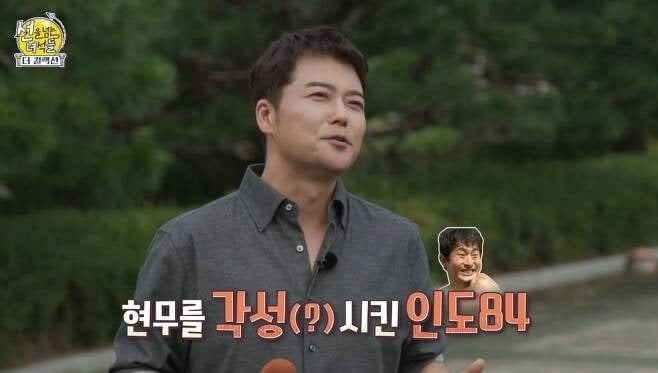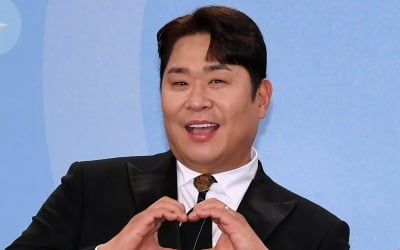TV
Kian 84, at this rate, entertainment grand prize is confirmed

MBC's entertainment show 'Guys Who Cross the Line - The Collection' (hereinafter referred to as 'Faeries'), which aired on the 29th, featured a special feature on the '3 Gold (Kim Young-sam, Kim Jong-pil, Kim Dae-jung) Collection' held at the National Assembly building, the 'heart of Korean politics'. lost. Together with historians Kim Jae-won and Park Tae-gyun, the members visited various places, including the National Assembly Library's treasure trove and the plenary conference hall, to delve into the turbulent history of the National Assembly.
In particular, for Jeon Hyun-moo, the National Assembly was a place that reminded him of his short time as a reporter. Jeon Hyun-moo, who transformed into a daily reporter, attracted attention by appearing while giving a news briefing. During the briefing, Jeon Hyun-moo, who came to realize the reality due to embarrassment, shouted, “If only Kian84 hadn’t drank the Indian water.”
The full-scale tour of the National Assembly has begun. The members learned from the first step the history of the National Assembly, which went through a total of 9 constitutional amendments over 75 years. We followed in the footsteps of YS (Kim Young-sam), JP (Kim Jong-guk), and DJ (Kim Dae-jung), the so-called three gold figures, who emerged during a turbulent period in Korean politics. The 'Three Money Era', which led politics through competition and cooperation, surprised everyone with its turbulent events.

The actions of Kim Young-sam and Kim Dae-jung, 'young sensations in politics' who fought against Park Chung-hee's long-term rule, stood out. During the 7th presidential election, up to 1 million people gathered at candidate Kim Dae-jung's campaign rally at Jangchungdan Park, demonstrating the people's desire for a change in government. In the 1970s, on the way to the Yushin Constitutional Amendment, Kim Dae-jung was kidnapped by assailants from a Japanese hotel. Kim Dae-jung was dramatically rescued just before his death, and the 'DJ kidnapping incident' caused a big stir. Also, under the dictatorship, Kim Young-sam fought back by calling for democratization, and was expelled from the National Assembly. At this time, Kim Young-sam’s response, “Even if you twist a chicken, dawn will come,” is still talked about to this day.
During the new military regime's reign, amid hardships, Kim Young-sam and Kim Dae-jung once again tried to overcome the crisis. Kim Dae-jung, who was sentenced to death, went into exile with the help of the United States, and Kim Young-sam, who was under house arrest, went on a 23-day hunger strike to mark the third anniversary of the May 18 Gwangju Democratization Movement. Kim Dae-jung, who was in the United States, supported Kim Young-sam's fast and agreed to unite. Kim Young-sam and Kim Dae-jung, who joined forces again, announced a joint statement in Seoul and Washington on Liberation Day on August 15, 1983, saying, 'The struggle for democratization is a struggle for national independence and liberation.' This marked the beginning of an important trend leading to democratization in 1987.
The 9th constitutional amendment revived the direct presidential system, but the opposition party was divided due to Yang Kim's candidacy, causing regret. Afterwards, the merger of the three parties created a large ruling party, and the structure of our political history changed between conservatives and progressives, which continues to this day. Jeon Hyun-moo, who followed in the footsteps of the three figures and examined Korean political and democratic history, sometimes together and sometimes separately, said, “To what extent are the stories coming out of the National Assembly directed at the people? Thinking about such things gave me goosebumps. “I thought I should pay more attention today as an opportunity,” he said, making us think about the meaning left behind by the National Assembly tour.
The next story of 'Guys Who Cross the Line - The Collection', which will feature a special feature on artist Kim Hwan-ki, the 'Picasso of Korea', will be broadcast at 9:10 pm on November 5.
Taeyuna, Ten Asia Reporter youyou@tenasia.co.kr


